Scaling up climate action in Turkey
Attachments
Summary
Bu, internet sayfası ve raporun İngilizce versiyonudur, Türkçe versiyon için burayı tıklayın. This is the English version of this webpage and report, click here for the Turkish version.
In Turkey, there is tremendous potential to scale up climate action, including in the focus areas of this study, that is: electricity supply, road and rail passenger transport, and residential buildings. Increasing climate action now would initiate technically-feasible sectoral transitions towards a zero-emissions society while directly benefiting Turkey’s sustainable development agenda. This report, the fifth country assessment in the Climate Action Tracker's Scaling Up Climate Action Series, analyses three key areas where Turkey could accelerate its climate action: electricity supply, road and rail passenger transport and the residential buildings sector. The report illustrates GHG emissions reductions from such actions, along with other benefits for sustainable development.

Potential impact of scaling up climate action
Scaling up climate action in Turkey's electricity supply, passenger road and rail transport, and residential buildings sectors alone can reduce economy-wide emissions by 14% below 2017 levels by 2030, reversing the current upward trend. Together, these sectors account for about 50% of Turkey’s national GHG emissions (excluding land use and forestry), which were at 526 MtCO2e in 2017. Turkey is already overachieving its mitigation target set in its Paris Agreement pledge (“Intended Nationally Determined Contribution” or INDC) and should improve this target by 2020.
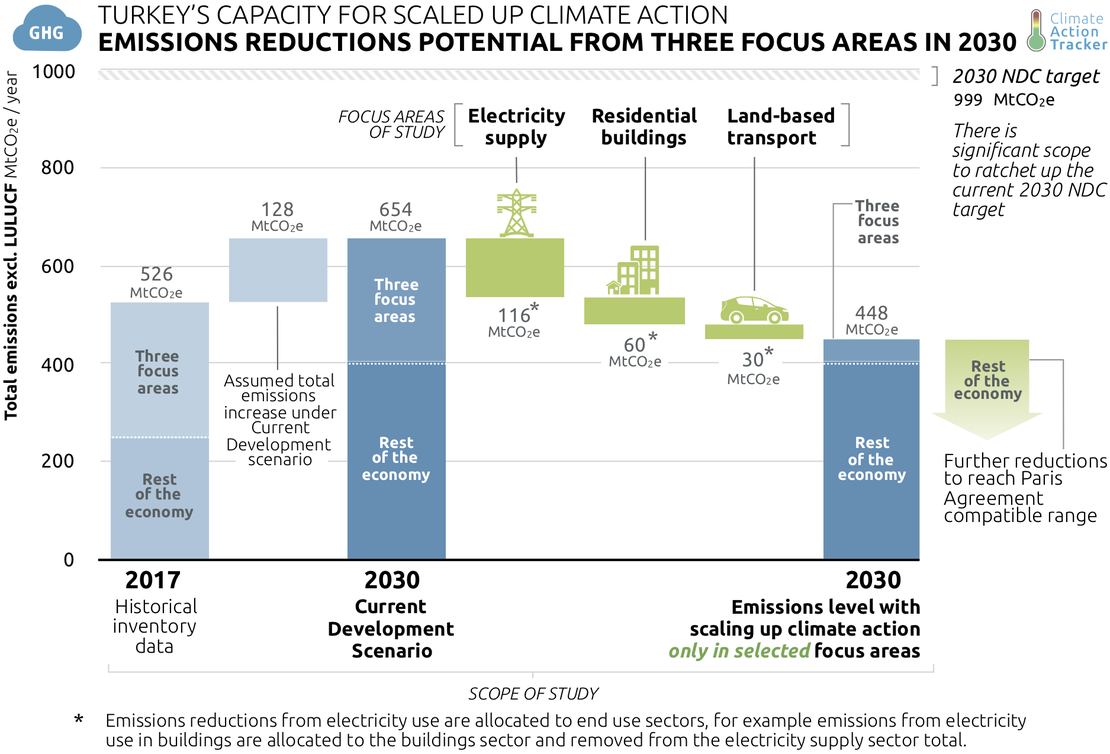
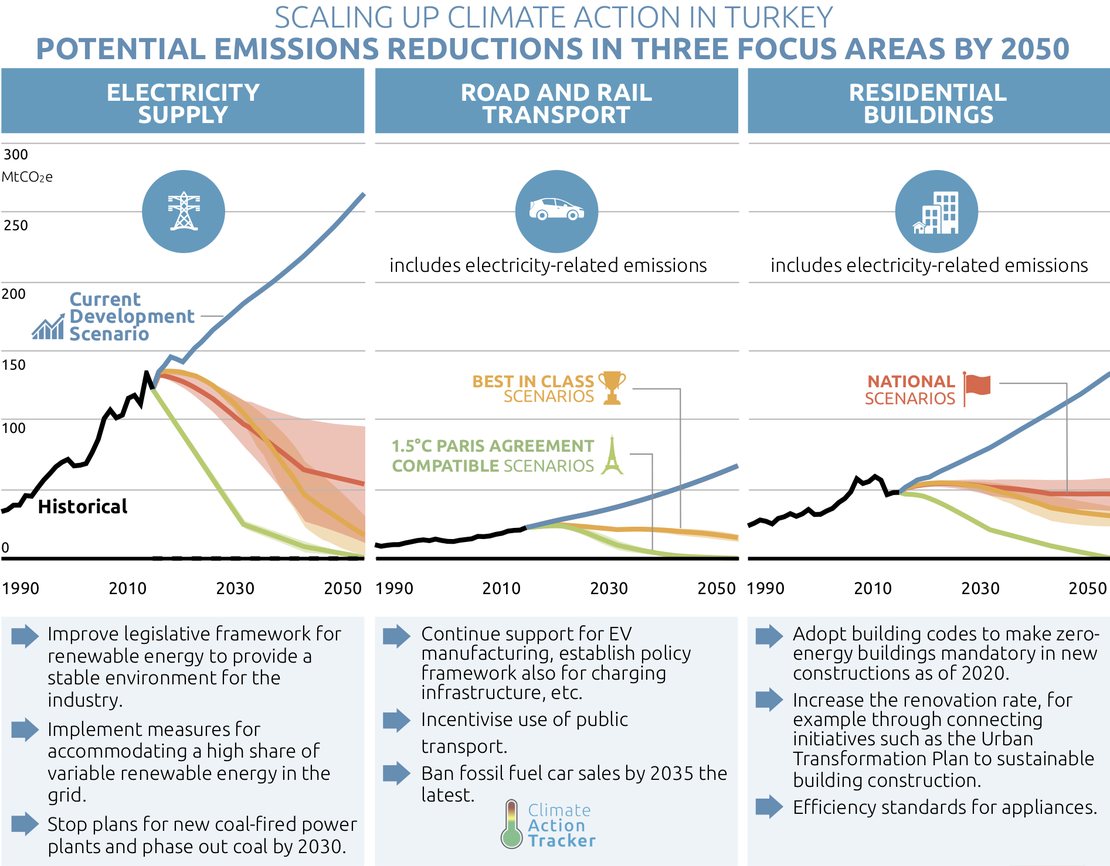
Electricity supply
To support energy security, Turkey aims at increasing both the share of renewables as well as domestic coal in electricity generation. The prices for renewables from Turkey’s renewable auction rounds are very low, which brings into question the economic attractiveness of further embarking on fossil energy. In fact, the plans for new coal-fired power plants, while still among the world’s largest, has decreased in recent years. For a Paris-compatible electricity sector, Turkey needs to phase out coal by 2030, significantly increase the role of renewables in its planning, and establish a sound legislative framework that should include allowing for a high share of variable renewables. Turkey’s electricity generation needs to be fully decarbonised by mid-century. This is also key for decarbonising end-use sectors through electrification.
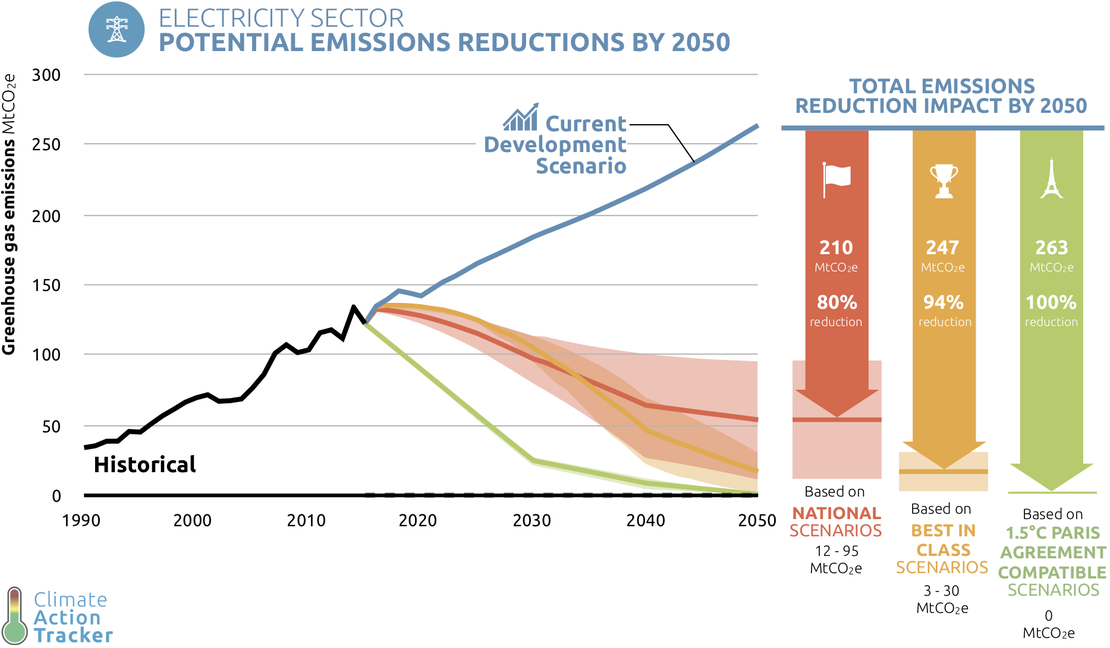
Passenger transport
In parallel to decarbonising electricity, strong electrification of the passenger vehicle fleet is required to bring the Turkish passenger transport sector onto a pathway in line with the Paris Agreement. Other influencing factors, besides electrification, include a shift towards a higher share of public transport. In our Paris Agreement compatible scenarios, such actions reduce emissions in this sector by around a third in 2030 from today, and reduce them to zero by 2050.
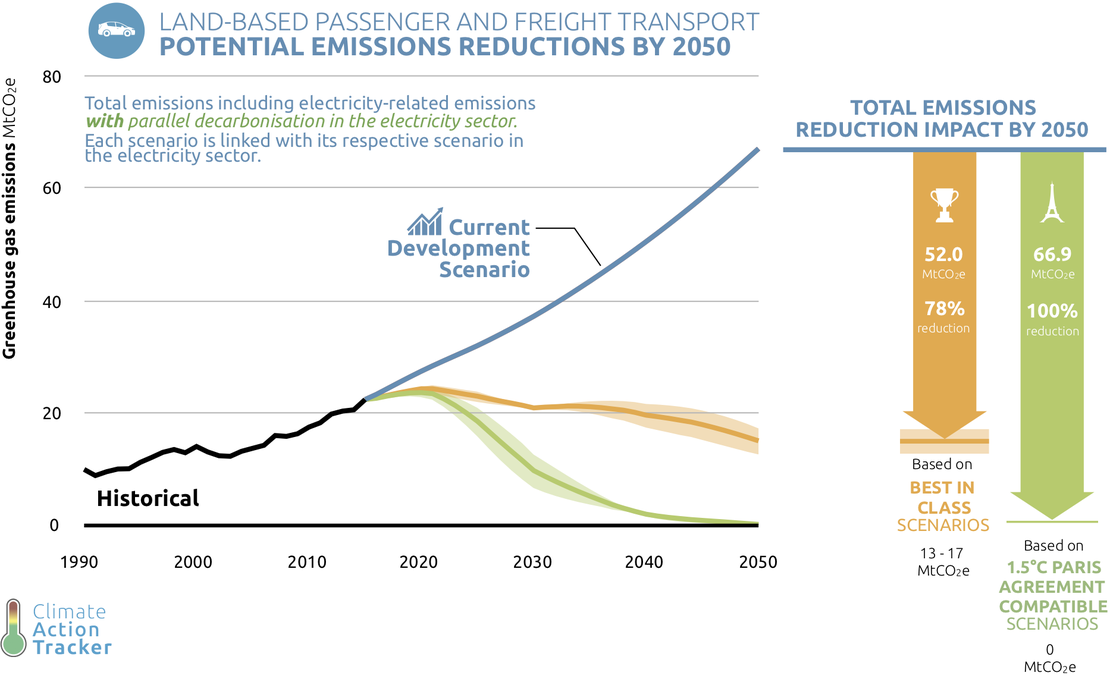
Turkey is one of the largest automotive manufacturers for exportation. It is also aiming at producing electric vehicles domestically, which will be an important step in enabling such a transition in Turkey and improving global competitiveness.
Residential Buildings
A Paris-compatible residential buildings sector requires strengthened standards for new buildings towards near-zero energy, and a deep renovation of existing residential buildings. Heating and cooking need electrification and energy efficiency improvements, also required for lighting and other appliances. In our Paris-compatible scenarios, such actions can reduce emissions in this sector by 40% to 50% by 2030 from today, and to zero by 2050. This includes electricity-related emissions, under the assumption that the electricity sector decarbonises.
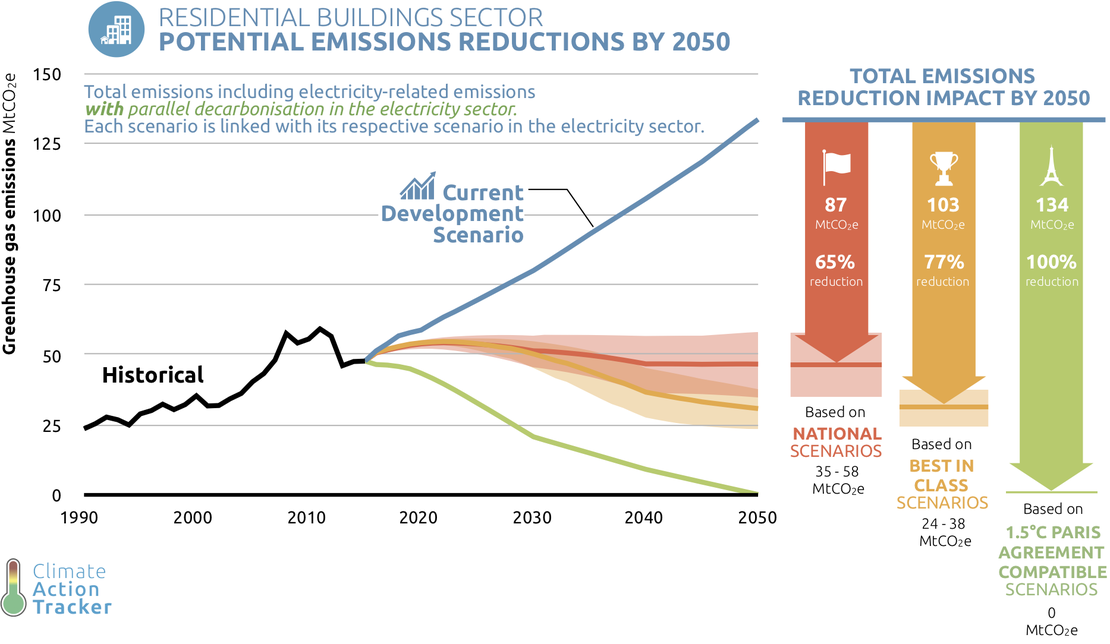
Quick links
Stay informed
Subscribe to our newsletter
 Türkiye’de İklim Eylemini Artırmak
Türkiye’de İklim Eylemini Artırmak
 Scaling Up Climate Action in Argentina
Scaling Up Climate Action in Argentina
 Scaling Up Climate Action in Australia
Scaling Up Climate Action in Australia
 Scaling Up Climate Action in the EU
Scaling Up Climate Action in the EU
 Scaling Up Climate Action in Indonesia
Scaling Up Climate Action in Indonesia
 Scaling Up Climate Action in South Africa
Scaling Up Climate Action in South Africa